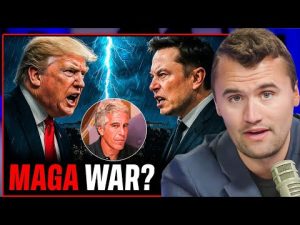**Minneapolis: A City in Turmoil – The Struggles of Law Enforcement**
Minneapolis, once known for its beautiful lakes and vibrant culture, has become a symbol of chaos and unrest over the past few years. What began as a response to a tragic event quickly escalated into a situation that many now argue is comparable to a war zone. While the focus of the media often centers on protestors and their grievances, one must not overlook the serious challenges faced by law enforcement during these turbulent times.
A recent conversation revealed the harsh reality police officers experienced during the peak of unrest. With one cop sharing insights about his firsthand experiences, it was evident that the situation was far from safe. Officers found themselves overwhelmed, being bombarded with cries for help amid relentless gunfire and Molotov cocktails. The city felt like a third-world country, where the cries for safety fell on deaf ears. The image of officers begging for assistance resonates deeply; many were left to fend for themselves while their own city’s leadership seemed more concerned about optics than the safety of its citizens and law enforcement.
The departure of police from their precinct is a defining moment in the narrative of Minneapolis. This decision, spurred by escalating tensions from rioters, sent a chilling message: the authorities had retreated, leaving the streets open for chaos and anarchy. This cessation of police presence not only emboldened those participating in the riots, but it also fostered an environment where officers felt not only unsupported but actively punished for merely doing their jobs. This sets a dangerous precedent in a society that should be built on law and order.
Moreover, the rapid settlement deals made by the city before any trial could commence raised eyebrows. It raises the question of integrity and fairness. Why settle before the full scale of the events has played out? Such actions might lead to a perception of a city eager to blame its police force rather than seek the truth. It creates a narrative that officers are guilty until proven innocent, a significant shift from the principles of justice that America holds dear. With such rapid moves, it feels like a punishment for the defenders of peace rather than a quest for accountability.
As the dust eventually settles, questions remain regarding the future of Minneapolis. Is it a safe city anymore? The lingering shadow of recent events casts doubt on that notion. The ongoing struggles of law enforcement, coupled with the sentiment expressed by many citizens, reflect a community in distress. While the city grapples with its identity in the wake of turmoil, one hopes that it can find a path forward that acknowledges the sacrifices of its law enforcement while addressing the community’s concerns.
In conclusion, the story of Minneapolis is far from over. Law enforcement’s challenges and the city’s response to the upheaval will continue to be a focal point in discussions about safety, justice, and community within America. As we look forward, all eyes will be on Minneapolis, waiting and hoping for a future where peace, respect, and order can be restored.







